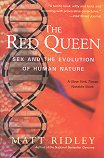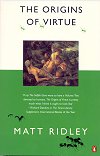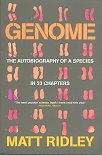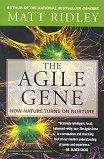This is a riveting account of the biology of sex, from how and why it might have originally evolved in simple creatures, through the bizarre variants that occur throughout the natural world, to the evolutionary effect it may have on human behaviour and intelligence. Ridley has a marvellously lucid prose style, and isn't afraid to tackle technically difficult topics. All this is backed up by references to the technical literature, for those brave enough to delve deeper into the evidence behind the arguments.
One thing I particularly like is the way Ridley doesn't just give a definitive answer, but explores and evaluates a variety of different hypotheses. For starters, why does sex exist at all? In asexual organisms, the descendents have all the genes of the parent, whereas in sexual ones they have only half. So wouldn't the selfish gene prefer asexual reproduction? Maybe it's there to provide greater diversity, greater evolvability? But that's treading dangerously close to the idea of kin selection, evolution bettering the species rather than the individual, and that's not how it works. The most plausible hypothesis appears to be the advantage of resistance to fast-evolving parasites.
Once we're past the why, we get on the variations (including the effects that make the Y chromosome inhibit or damage X characteristics, and vice versa: there really is a war between the sexes!), the process of sexual selection and the handicap principle, and eventually to human culture, including why we are (mainly) monogamous. Ridley finishes by weaving a highly interesting, if non-standard, argument that human intelligence itself might be a result of sexual selection. Where peahens went for flashy tails, human females went for clever mates; the rest is history.
One of the things Ridley explains about the handicap principle is that it mustn't be possible to cheat. "Look how fit, healthy and strong I must be to be able to carry round this clumsy heavy expensive tail" doesn't work if you can fool the peahen with a fake cheap flashy tail. If intelligence is due to sexual selection in the same kind of way, then it should be equally expensive to achieve and difficult to fake: what then are the consequences for developing Artificial Intelligence?
This is a clear, fascinating, stimulating, provocative read. When I finished it, I went straight off and bought the rest of his books.



